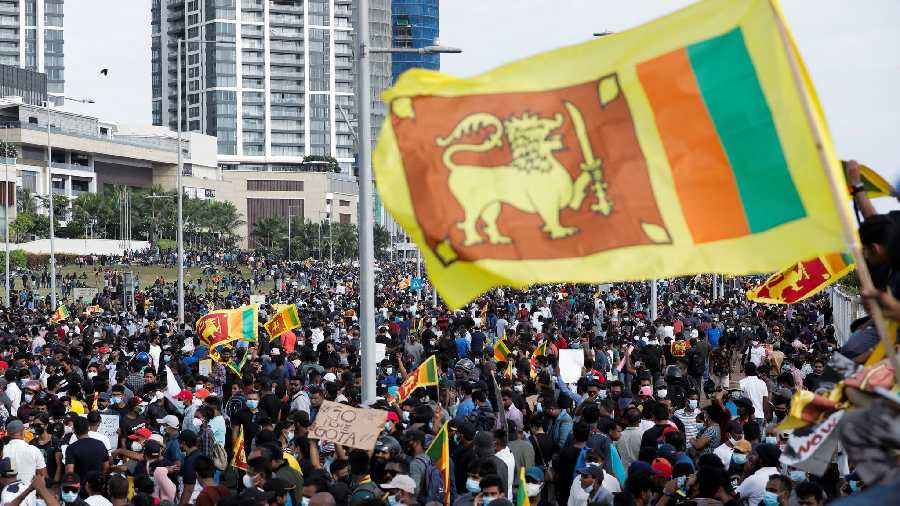Normal life was disrupted in Sri Lanka's northern and eastern provinces on Tuesday due to widespread protests by the main Tamil party Tamil National Alliance against a new controversial anti-terrorism bill drafted to replace a draconian counter-terrorism law.
The new Anti-Terrorism Act (ATA) will replace the much-maligned Prevention of Terrorism Act (PTA) of 1979. The PTA was introduced as a temporary arrangement to counter the campaign of separatist violence by the Tamil minority militant groups in 1979.
On April 1, Prime Minister Dinesh Gunawardena told reporters that the new counter-terrorism law will be introduced later this month.
The protests, organised by the Tamil National Alliance (TNA), were against the new Anti-Terrorism Act (ATA), political sources from the two provinces said.
In the northern Jaffna's Tenmarachchi, Kodikamam and Chavakachcheri, life came to a standstill with all shops and business establishments shut in the three divisions, they said.
The government in mid-March gazetted a new bill which is set to replace the PTA. The PTA was widely used by the government troops during the LTTE’s armed conflict over three decades to set up a separate Tamil homeland in the north and east of the country.
International rights groups and Tamil parties have slammed PTA's provisions that allow arbitrary detention for several years without charges being filed in courts.
There have been instances of Tamils being held for involvement with the LTTE for over 20 years without being charged.
The government has also come under pressure from the European Union (EU) to repeal the PTA. Since 2016, the European Union has been urging the government to repeal the PTA and bring in new counter-terrorism legislation in line with international standards.
The EU parliament in mid-2021 resolved that the preferential trade facility of (the Generalised System of Preferences) GSP+ must be scrapped for Sri Lankan exports unless the government took action to repeal the PTA.
Amid mounting global pressure, the government was compelled to repeal the PTA or replace it with a new counter-terrorism law which would conform to international standards.
However, the new ATA bill is being viewed as harsher than the PTA.
Trade unions and opposition political parties claim that under ATA they could get framed for terrorism for enjoying their basic right to protest.
Sri Lanka's opposition parties, besides the minority Tamil and Muslim parties, on Monday decided to put up a joint front against the new anti-terrorism bill.
Although Justice Minister Wijeyadasa Rajapakshe was hoping to table the bill in Parliament on Tuesday, it had failed to get into the day’s agenda paper, parliament officials said.
The government has indicated that the ATA would be presented in Parliament this week.
The PTA was widely used in Sri Lanka’s anti-separatist campaign from 1979 until the LTTE who fought for a separatist Tamil homeland was crushed in 2009.
On March 17, the ATA of 97 pages was published in the government gazette.
The opposition and civil society groups objected to the new ATA saying it targets the civil society protests which took place mid-last year over the then government’s failure in handling the ongoing economic crisis.
Except for the headline, this story has not been edited by The Telegraph Online staff and has been published from a syndicated feed.










